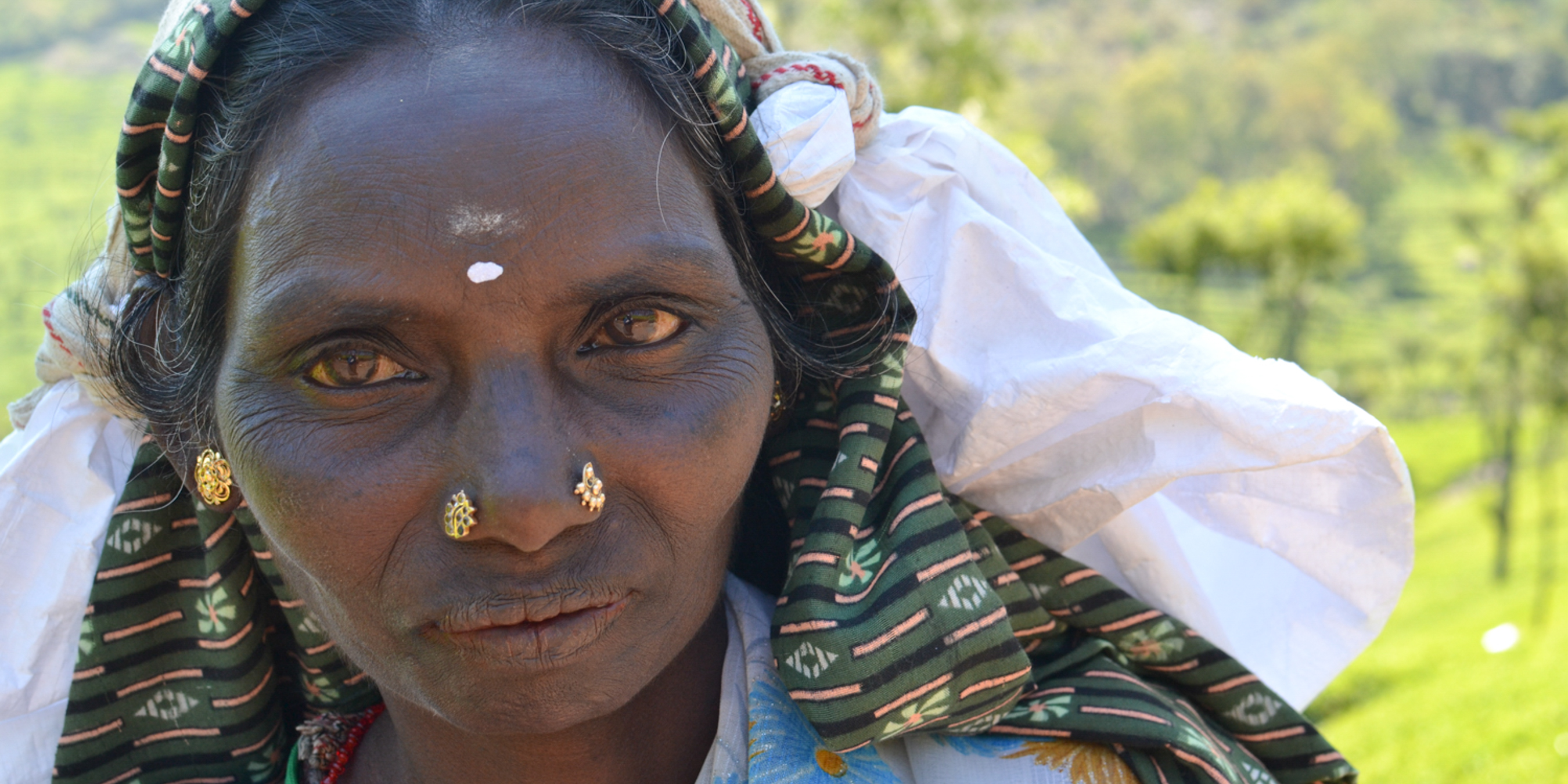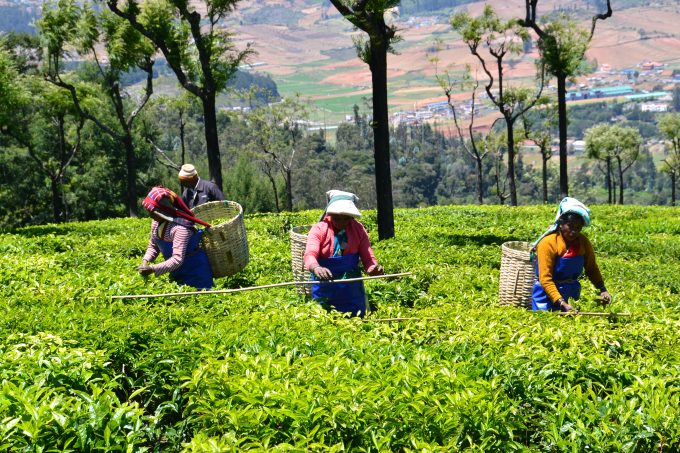
Our actions matter and the smallest most inconsequential daily actions add up to a lifetime of impact.
What we eat and drink when we bake matters. Whilst perhaps there is an argument to say that the carbon footprint of visiting a tea plantation far outweighs the number of cups we could ever drink here at the Sourdough School, I always take a look at the full impact of my work and decide if a trip is justified. On its own there is certainly no justification to take such a trip, but I combined wanting to investigate the tea that we drink here with contributing to BBC Radio 4 food programme. The reach and potential influence of getting people to understand tea more than covers the environment cost from such a trip. The stories and photos were also covered in my 2nd Book Food for Thought.
A label isn’t enough for me. I have to see with my own eyes. to touch, feel, connect and understand. It’s perhaps a dyslexic thing, but I felt that meeting the people, standing in the plantation made a difference to the way I teach. It was amazing to see the plantations.
I’m not sure that there is anything more traditional that a cup of tea and a slice of toast. It’s what I had almost every afternoon when I came home from school growing up, and tea is an essential ingredient in what we do at The Sourdough School. Not just for a quick cuppa during the day – although we do enjoy a tea break and a chance to chat with students taking courses with us. We also use tea in Kvass, and for making some of the bread such as the Earl Grey and gig loaf and in the syrups we use. Tea is part of the daily routine here, and as with all the ingredients I use I feel that it is important to understand more about where and how it is grown, and who is doing the growing, picking, processing and packing.
What we teach is beyond bread and we mill our town flour with local grains and ingredients such as green tea and cocoa nibs. The provenance of everything we use at the school really matters. I source flours from mills that I’ve visited myself. The sea salt we use is produced on the shores of North Wales, and my own kitchen garden provides us with fresh herbs to use in our flour blends and vegetables for lunch. Our teas though come from Clipper, the UK’s first Fairtrade tea company. It was this desire to understand where my ingredients come from and meet the people producing them, that led me to accept an invitation from Clipper to visit some of the tea estates they work within southern India.
My trip took me to tea plantations on the slopes of the Nilgiris Mountains, an area that is incredibly beautiful – vidid green, with trees and tea bushes all along the hillsides. While I was there I was able to see every step of the tea process, from watching the workers pluck leaves from the tea bushes, singing as they work, to the post-harvest processing of the leaves. The work of harvesting the leaves, at just the right growth stage, is physically demanding. Groups of women move quickly among the tea bushes, filling both hands with the leaves they pick from just the tips of the stems, then carefully tossing them into big sacks that they carry on their backs.
One of the highlights of my trip was seeing a wild buffalo bull leading his herd through the tea plantation. As these magnificent beasts meandered through the vegetation, one of the workers explained that the animals had only returned to the plantation after it became organic. I was struck by the fact that the move to more sustainable production methods was working both for the business and for the environment.
I was also able to spend time with the people who live and work on the estates. The children were especially enthusiastic to share their stories with me. They told me about the school they attend and their plans for the future. The school, and the polytechnic that many of the young children I met will progress to, are supported by the Fair Trade premium. This is an extra payment earned from the tea, which is managed by a local committee and invested in services and infrastructure to support the community. It was obvious from the big smiles on the children’s faces that they are directly benefitting from the Fairtrade premium. And the benefits to the community go far beyond education. The Fairtrade premium also funds healthcare and ensures good living conditions for the estate workers and their families. Seeing this first-hand means that I can now wholeheartedly recommend that anyone and everyone who buys tea should consider Fairtrade products if they can afford them.
My visit to the tea estates of India gave me a real appreciation just how much of a difference buying Fairtrade can make, both to the quality and sustainability of the product and to the lives of the people working hard to produce the leaves essential for our daily cup of tea. Knowing that the extra few pennies we spend on tea are being so well used on the other side of the world, So now I am happy and our decision to use Clipper as the school’s tea supplier means that every cup of tea we drink and every time I use the tea as an ingredient, we are also supporting the soil the tea is grown in, supporting the families and people that pick and tend the plantations.
Find out more about Clipper teas: http://www.clipper-teas.com/
Here more about tea and my trip to India in these BBC Food Programme episodes:
http://www.bbc.co.uk/programmes/b08gwk5j
http://www.bbc.co.uk/programmes/b08hl90c




 Our Own Olive Oil Tree
Our Own Olive Oil Tree
Leave a Reply